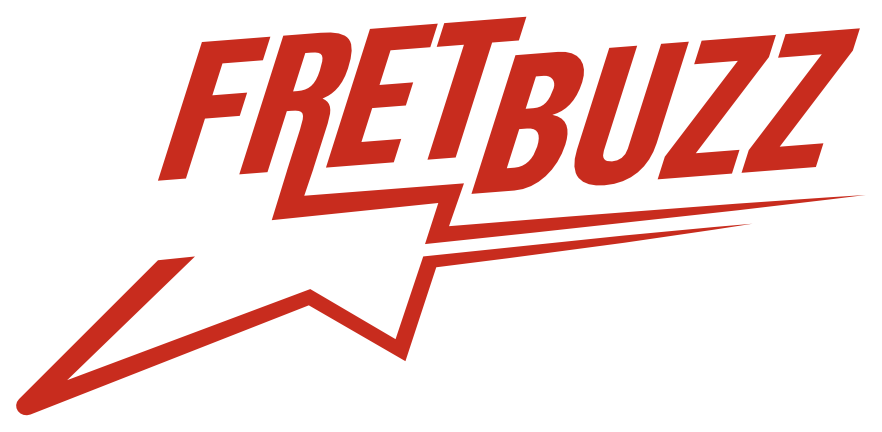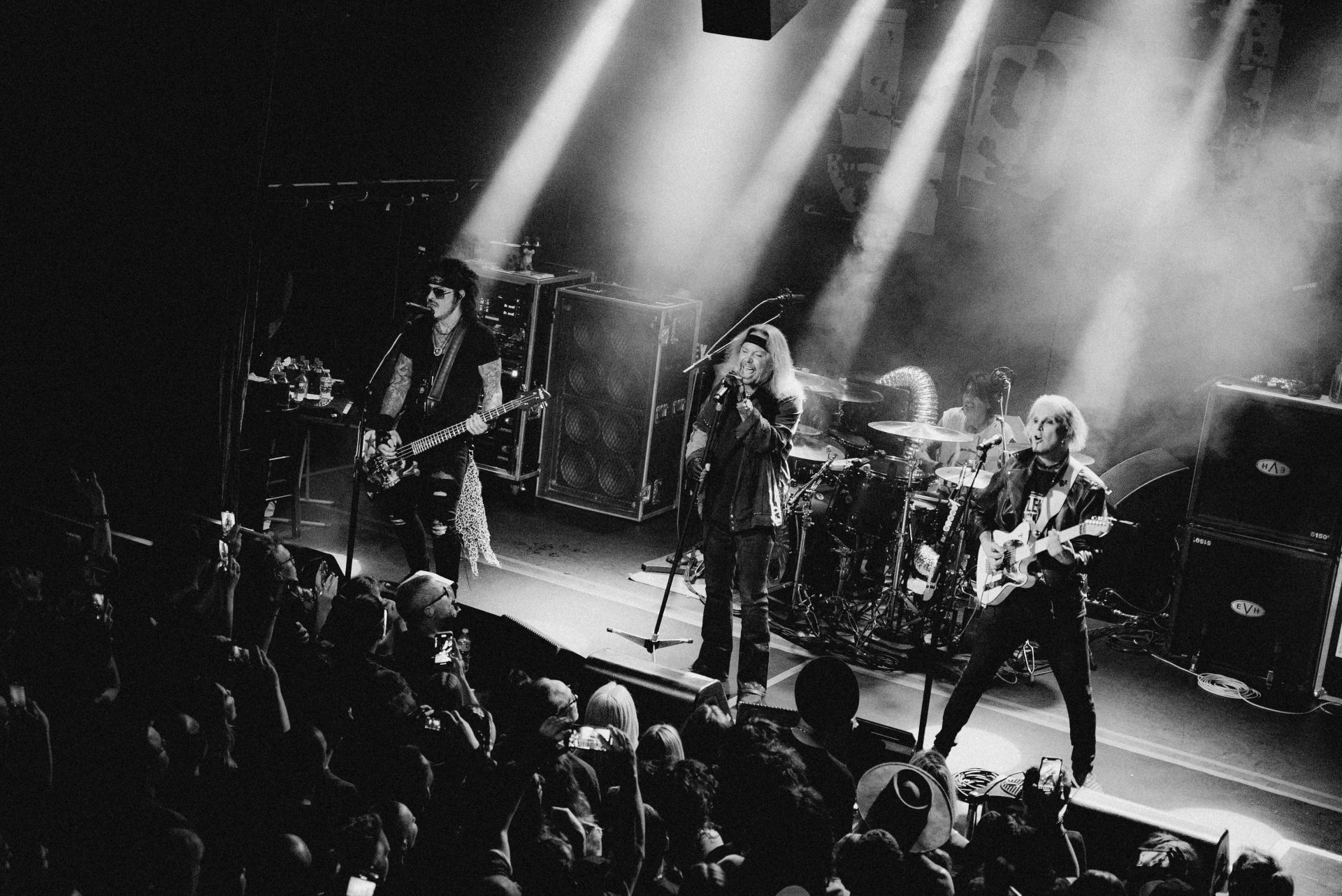On May 6, Mötley Crüe performed a secret show at the small New York City rock club, Bowery Ballroom. About 300 fans enjoyed the kind of close-up-and-personal experience the band staged in the 1980s when they were rising stars in the Sunset Strip hair metal scene. During the set, the Crüe performed their new number one single “Dogs of War,” as well as hits including, “Shout at the Devil,” “Kickstart My Heart,” and “Dr. Feelgood.” Tickets for the show sold out in under five minutes, when fans noticed the band’s social media post about “1981” playing New York, and flocked to the exclusive Crueseum/S.I.N. Club pre-sale. This summer, the band will play the festivals Welcome to Rockville, Summerfest, Louder Than Life, Aftershock, and more. A full schedule and additional information can be found on motley.com. Watch the video for “Dogs of War” here.
The once-thriving Sam Ash music instrument retailer has started shutting stores across North America. The company announced it was going out of business on May 2 on social media. Along with the announcement, Sam Ash offered consumers an opportunity to take advantage of closeout prices.
“This unfortunate news presents a fantastic opportunity for great deals across our premium selection of musical instruments & pro sound equipment. We will also be offering specials on SamAsh.com during this time. Thank you for allowing us to serve musicians like you for 100 years. With much love and deep gratitude, The Ash Family.’”
Sam Ash opened their first store in Brooklyn, New York in 1924 and became the largest family-owned music instrument chain store, with 44 stores in 16 states.
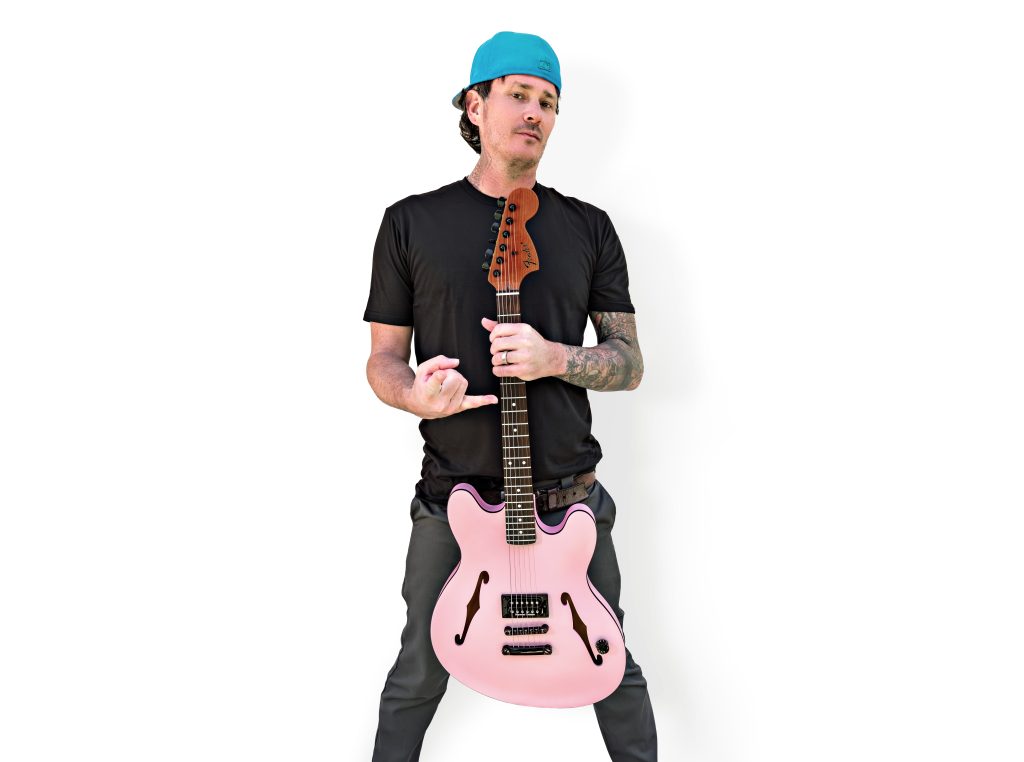
Fender and Blink-182 guitarist Tom DeLonge have announced the release of the signature Tom DeLonge Starcaster, and the pop-punk veteran has plenty to say about the guitar, which retails for $1,199.99. USD. “I love this guitar, he says. “It’s the coolest guitar ever made. Firstly, it is called a Starcaster—that’s the most important thing. It goes to space and expands your mind. I made some changes to the original Starcaster; I’ve streamlined the electronics, added the 70s headstock to round out the weight, and chose the matte finish with black hardware so its look matches its modern feel. This guitar shows my evolution as a player but also has the hallmarks of where I came from and what I’m about.”
The Starcaster was first released in the ‘70s, long before DeLonge’s chart reign. After picking one up, he demonstrated his Blinksmanship with the instrument in 2022, when he first used it onstage. Here’s what The Tom DeLonge Starcaster includes: Seymour Duncan SH-5 Duncan Custom humbucker, a modern “C” neck, 12-inch-radius rosewood fingerboard, DeLonge’s original signature artwork, and a custom-crafted neck plate. The guitar is available in four finishes: Satin Shoreline Gold, Satin Surf Green, Satin Olympic White, and Satin Shell Pink. Watch demo video here:
Check out the “Fender Conversation with Tom DeLonge” here
Crowbar and Down guitarist Kirk Windstein has signed with Solar Guitar to release his new signature model, the X1.6KW, a sharp, mean guitar with a “Madi Gras Purple Metallic” finish. Windstein’s 22-fret guitar features an alder body, a three-piece 24.75-inch set maple neck, and an ebony fretboard. The fretboard features block inlays and a fleur-de-lis inlay on the 12th fret. The X1.6KW comes equipped with a Tonepros TOM bridge, active EMG 81 and 85 pickups, volume and tone knobs, and a three-way pickup selector switch.
Kirk Windstein talks about his signature guitar here.
The guitar Eric Clapton used when he wrote “Wonderful Tonight” will be auctioned off on June 12 at Bonham’s London. Clapton already sold the 1974 Martin 000-28 in 1999 to raise money for the Crossroads Center charity. The winner of that auction has held onto the legendary instrument until negotiating the auction with Bonham’s.
The Martin has sometimes been called the Rodeo Man acoustic due to a bumper sticker on the side that reads, “She’s in love with a rodeo man.” Don Williams released the song of the same name in 1974, shortly after the famous Martin was manufactured. Clapton often played the guitar when he was working on the 1977 album Slowhand.
Donner Music has partnered with School of Rock on a multi-effects guitar pedal for young musicians. The company hasn’t released specific details, but in a publicity photo the pedal looks a lot like the Alpha Cruncher, which features distortion, chorus and delay. Donner plans to provide more than 65,000 School of Rock students with the specially priced pedal and other Donne gear. “Donner, like School of Rock, is passionate about enriching lives through music and inspiring the next generation of musicians,” said Sam Dresser, Chief Innovation Officer of School of Rock. “We believe that our entire community, from our expert music instructors to our talented students, will love the quality and overall value of Donner instruments, gear and accessories.” The move marks Donner’s first strategic partnership with a chain music education institution, and announced plans to engage in other collaborations with other companies and artists. In January, Donner announced a partnership with Jack White’s Third Man Hardware on the multi-effect pedal the Triple Threat.
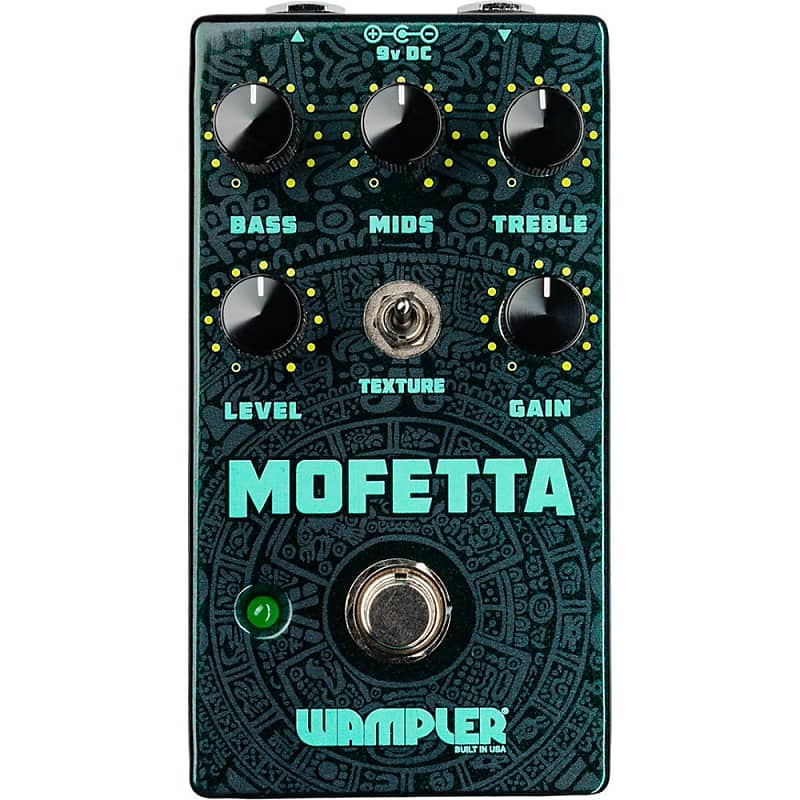
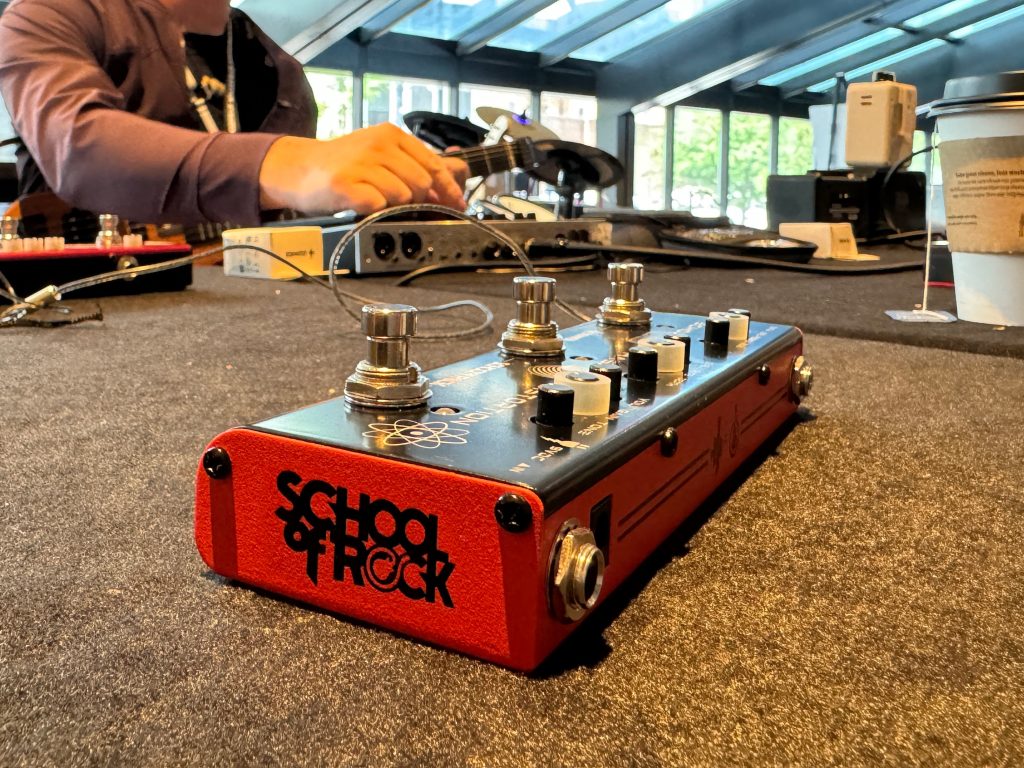
Guitar effects guru/scientist Brian Wampler has modified the Mosfet-driven technology of the 1990s MT10 Mostortion to create the Wampler Mofetta Overdrive/Distortion, which is now available in a limited run of 600 copies for $199.97. “Think of the Mofetta as a supercharged Mostortion, reborn and amplified,” Wamplers says. “I made sure that it delivered the classic, amp-like overdrive, massive headroom, and versatile three-band EQ that made the original so famous. But I also wanted more and added a Texture Switch that introduces actual MOSFETs into the pedal’s overdrive section for a bolder, more articulate tone.” To learn about the birth and sound of the Mofetta Overdrive/Distortion and its “fantastic and unique twist” on Mosfet technology, check out the video here.
Here’s Wampler’s technology-saturated nerd-speak about what makes the Mofetta so monstrous. “Basically, there’s a toggle switch on it,” he begins simply, then launches skyward. “Down position is ‘stock mostortion circuitry.’ When you move the toggle in the upward position it changes the circuit entirely, adding in cascaded mosfet gain stages for true mosfet clipping.”
Why is this interesting? Let Wampler explain: “The original mosfet circuit is called that because the op amp is mosfet based. It isn’t using mosfets for clipping though – in fact, the opposite. The use of this op amp is because it’s ‘rail to rail’ – it doesn’t clip very easily with guitar. Instead, it uses traditional diodes for clipping. Mosfet clipping itself is interesting because it’s much more ‘amp like,’ has way better interaction with the guitar and sounds more like tube style clipping than diode clipping does generally.”
Uh, yeah. What he said. Keep tuning in to FretBuzz for a lengthy, user-friendly interview with Brian Wampler about what beginner pedal-pushers should think about when dipping a toe into the multifaceted pool of guitar effects.
